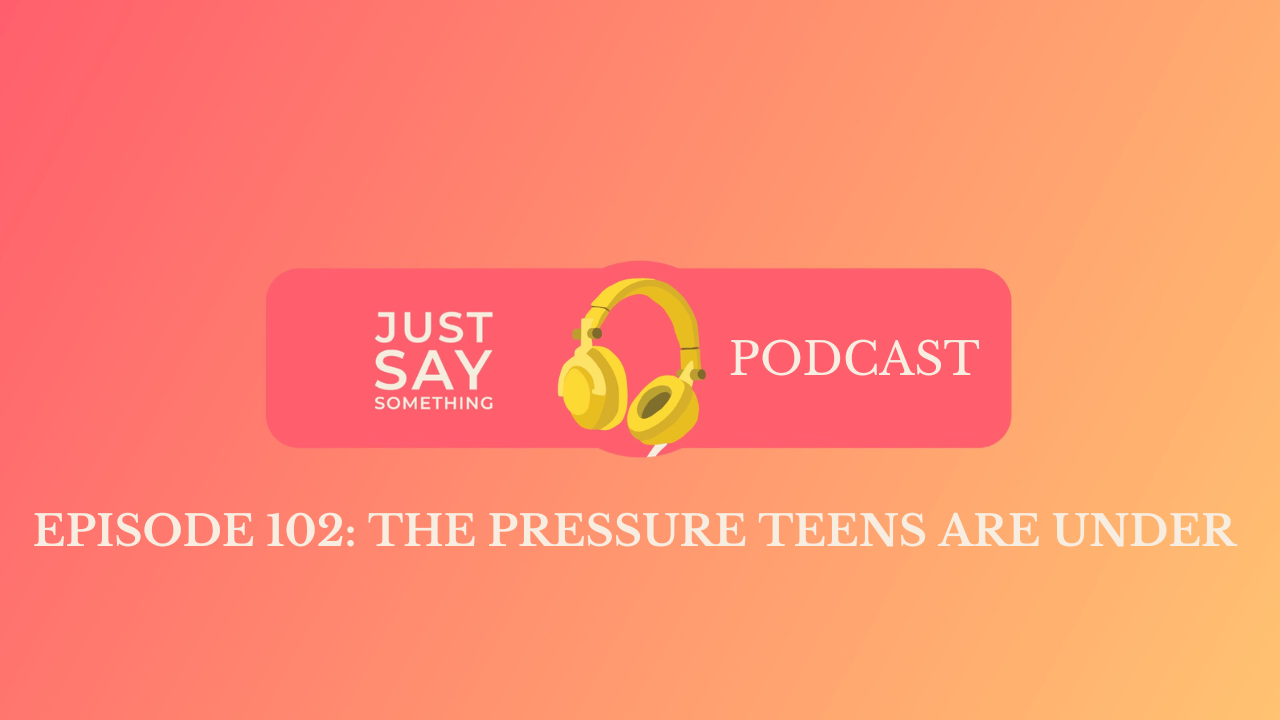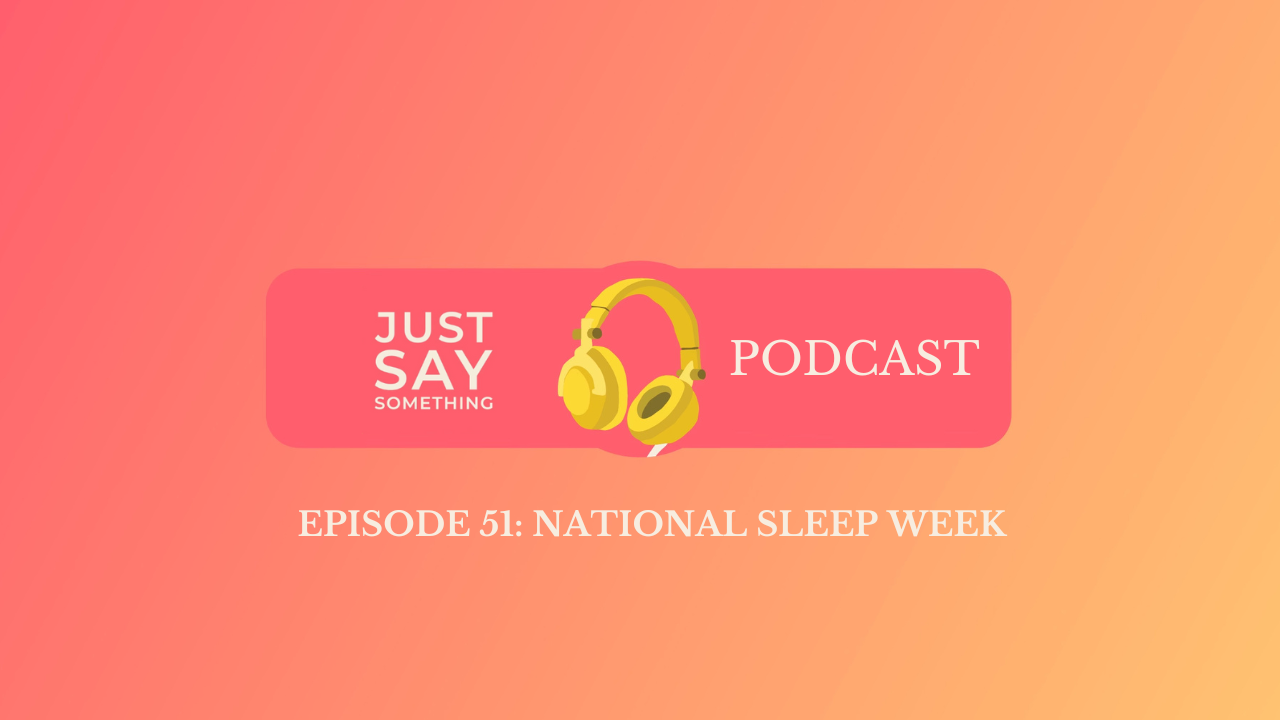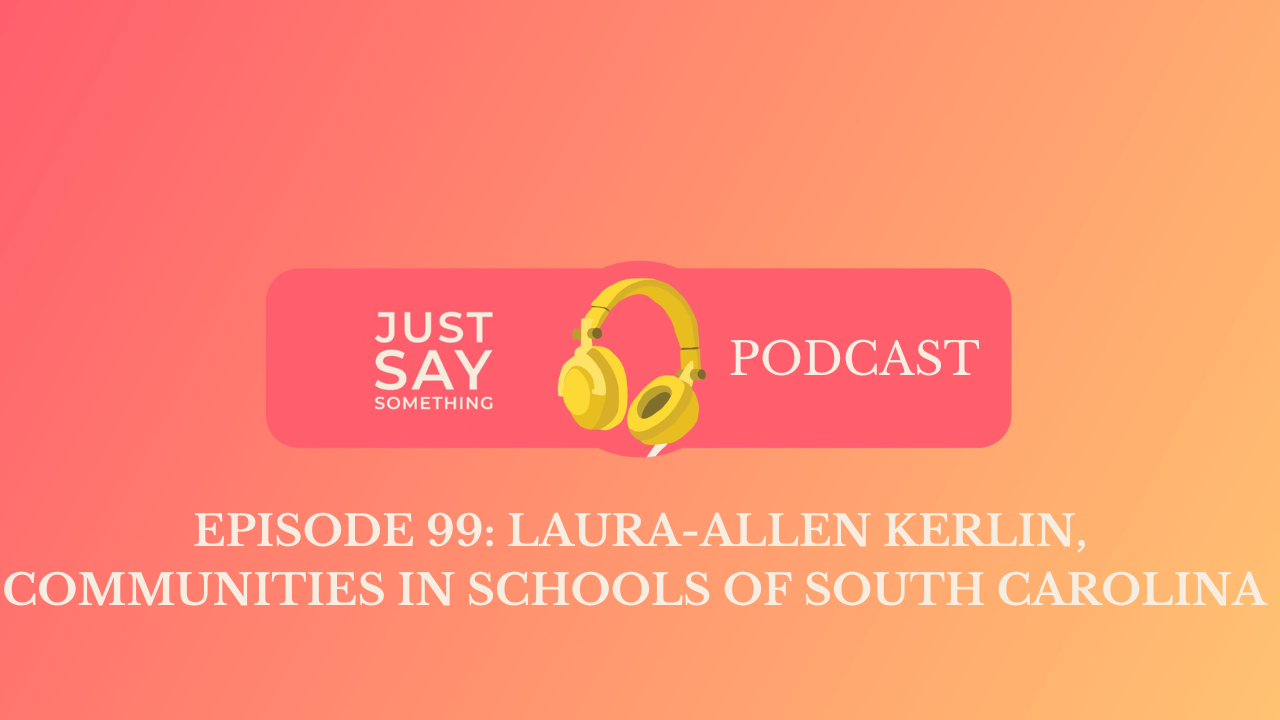Episode Transcript
[00:00:00] Speaker A: Foreign.
[00:00:10] Speaker B: Episode of Just say Something's podcast. My name is Philip Clark, and I'm the CEO here at Just say Something.
And again, I want to welcome you back, but I also want to remind you to please, like, share and subscribe.
And you can find Just say Something podcast where you find your favorite podcast. Hopefully, we're one of those.
So today we have a guest with us, and she is here representing an organization that has moved into our space here at Just say Something. So I would like to welcome Casey from Compass of Carolina. Hi, Casey.
[00:00:54] Speaker A: Hi.
[00:00:54] Speaker B: How are you today?
[00:00:56] Speaker A: I'm good.
[00:00:57] Speaker B: Good, good. So for our listeners out there who are not familiar with Compass of Carolina and your core services, can you give us a snapshot of what that might look like?
[00:01:11] Speaker A: We have several different services.
The first one, I would say is mental health counseling on a sliding scale. We don't take insurance, but we do do it on a sliding scale based on income so that individuals who don't have insurance can come and still get mental health therapy.
We have family violence intervention programs, which encompasses a lot of different programs.
The main ones being anger management and domestic violence. We have classes for the victims and the perpetrators. We also have anger management for teens that'll be starting up in September.
Then we also have Second Chance, which is for youth that are truant or having behavioral issues.
And that's usually done with the schools. We also do representative payee or veteran or federal fiduciary management. So these individuals are people who have been deemed by a judge incompetent or unfit to handle their funds. So we make sure, like, their power, rent, lights, Internet, water, everything is paid. Make sure they have groceries, make sure they're able to continue living the way everybody should.
[00:02:29] Speaker B: Okay. All right. So that's a wide, wide breadth of. Of opportunities to engage with the community there.
When I know yesterday we were talking in one of our meetings and talking about teens and anger that I know Misha on the team is like, oh, I hate that word. I hate, hate that.
Because it's really teaching kids how to deal with emotions.
[00:03:00] Speaker A: It is.
[00:03:00] Speaker B: And we just kind of pick out anger because that's the one that most people identify with.
[00:03:06] Speaker A: It is. And it's. It's not just anger. It's. Where is this anger coming from? What's triggering it? What is making this teen so angry that they explode?
[00:03:16] Speaker B: Right.
[00:03:16] Speaker A: And then it also, it. The program teaches them, what can I do instead? Or do I need to take a minute? Do I need to walk off? Storming off? Totally. Okay. As long as you Come back and take personal responsibility and say, I needed a minute. I, you know, something else was going to happen if I did it. But it's helping the teens recognize what it is that's starting it to begin with and then what to do once it gets to that level and helping them understand what they need to do and how to communicate better with adults.
[00:03:49] Speaker B: Right, right. Okay. So what's the age range for that particular program?
[00:03:54] Speaker A: The teen program is 14 to 17.
[00:03:57] Speaker B: Okay.
[00:03:57] Speaker A: They do go over some more adult themes like grooming, date rape, no consent, what to do when somebody rejects you, because that is another trigger for anger.
They also go over how to handle dealing with your parents or siblings or teachers that are making you ang angry.
Even life skills such as sleep hygiene. One of the facilitators was just telling me, you know, that's a really big thing. Teenagers want to stay up and procrastinate, and they stay up at night because they have control over it, whereas during the day they don't have control. So they're being told, you have to do this, this, this, this. And so that's part of the sleep hygiene is making sure they get enough sleep and telling them, yeah, we get it. But to be able to handle things better, you do need sleep.
[00:04:47] Speaker B: Right? Right. Yeah, that's. That's important, I think important for a lot of adults as well.
So if a parent is out there and they're like, oh, I wish my kid could go to that, how do they get in touch?
[00:05:01] Speaker A: So we have a phone. We're a phone call away or email away, a text away. We have our. Our main number. You can send a text. We cannot respond, but we can get the texts in. And then we. We put you into our texting line where we can respond.
We have a email which is info compassofcarolina.org or you can call us 864-484-673434 and just press the button. For family violence intervention.
Most of our programs go under the FVIP acronym.
So when you call in, you'll want to press the FVIP and you want to speak to client relations or press the button to become a member to start a class. It's pretty easy when you call.
[00:05:56] Speaker B: Okay. So I know in our community, domestic violence and abuse often go unseen.
And with compass and what you're. What is going on with that particular program?
What type of support does COMPASS provide for those individuals and our families that are going through that?
[00:06:26] Speaker A: So Compass does something that I don't think many places do a lot of places when you're court ordered to take classes, which a lot of these people that are the batterers are required to do.
They call in, they get the classes started. You know, they don't want to be there.
But what compass does is the facilitators listen during each class.
And our client relations person, Katie, she does an orientation with them in the beginning, and she asks if there are any problems, any issues going on that would keep you from being able to come to class, if there's any issues in the family. So they listen and kind of catch those red flags. And we do something called a staffing once a week where the facilitators and the therapists, Katie, they'll get together and say, is there anybody in your class that's, you know, throwing up red flags? Somebody needs help, something.
Something like that. So they.
They talk about each case individually and ask how they can help. Does this person need therapy? Does this family. Is. Is the reason they can't get on because they don't have childcare? Is there an Internet problem? Do they not have a computer or a tablet or something? You know, whatever is keeping them from being able to do these classes? Including. Including the victims and the children.
[00:07:49] Speaker B: So children 10 and above, 10 and up, you have. You don't have specific programs, but you refer.
[00:07:58] Speaker A: Right. We do refer out to, like, just say something. We had a family that a child. A child that was six, had witnessed domestic violence done to the mother, and she really wanted to get this child in. And so we don't have anything for children that young. So we sent the referral to you guys, and you guys got her in within a week with, I think, a therapist and got her into some other programs to help her kind of deal with the situation that she found herself in.
[00:08:31] Speaker B: Yeah, yeah, yeah. There's. There's just so many needs out there that those of us that deal with it every day, we see the needs. But if you're not dealing with it every day as far as being a resource and helping families, then you don't.
You think it's just. Oh, it's those other people.
[00:08:52] Speaker A: It can be overwhelming.
[00:08:53] Speaker B: Yeah.
[00:08:54] Speaker A: So the first point of contact you get when you call into our FVIP program is going to be Brenda or Lindsay. And both of them have been trained, you know, to.
To help if there's. If there's a big immediate need, somebody even down to feeling suicidal. We have kind of dropped everything and ran and knocked on the door to our therapist and brought her out to have her speak on the ph that's also with our rep. Payee clients. They have limited funds. Most of them are on Social Security disability, and that can be overwhelming for them as well. We work really hard at trying to maintain relationships with everybody that we can.
Even though there are so many clients coming through the door, our team just really cares about the people and who they are.
[00:09:41] Speaker B: Right, right. And I've seen that firsthand since you have been in here. And that's one of the things that I really appreciate with the team of Compass and the relationship that you build with the clients. I feel like it's the same atmosphere that we build here. Just say something.
So what is maybe the one thing that you wish the community knew more about Compass from your perspective?
[00:10:14] Speaker A: I. I think what the. What the community doesn't. Doesn't realize is that we actually have a whole section for veterans that we do the. The financial fiduciary management for them.
The VA or the client has to ask for us to become their fiduciary. But these people are people who have come. They. They've seen things. They've come back from war, they've come back from deployments, They've been gone for a long time, or they've had an injury dealing with PTSD or traumatic brain injuries, a lot of. A lot of mental illness, and they just can't handle life at the moment, which means they can't handle their funds. They're not paying their bills. And, you know, we see a lot of. A lot of homeless veterans. We talk about a lot of homeless veterans being out there needing help, and Compass can help.
We just need to get it out there that we can.
Our. Our fiduciary that handles them has a great relationship with the field examiners with the va.
They call his cell phone personally and says, hey, what is going on with this client? And he'll let them know, hey, I've. I've gotten a call, or no, they haven't called me. I don't know what's going on.
Send them to me. And just the amount of help they get with setting up an account and us paying their bills for them, and it takes the weight off their shoulders so that they can get more treatment. We also offer them treatment.
Several of our facilitators are actually veterans.
So when we get a veteran that comes in to our DV class, then we let them know, hey, we have this service available as well.
And then we also have connections with, like, upstate Lawyer Solutions.
So whenever we get somebody in, we do try to refer them out and make sure that that person as a whole is taken care of. Compass does great with holistic care. We just want to make sure that the person, the person can handle themselves, you know, and be a great contributing member to society as a whole.
[00:12:28] Speaker B: Right, okay. All right. Well, you're a great representative for Compass and I appreciate your time. So for the people that are listening out there, if they want to get involved, if they want to volunteer, who do they reach out, how do they reach out and what's the first step for them?
[00:12:47] Speaker A: The first step would just be getting in contact with us.
The info@compassof Carolina.org email is the quickest, easiest, best way. You can just send an email. There's no forms to fill out or anything like that and say, hey, I have time available on this day. Can I come volunteer?
For people who want to volunteer on a regular basis, we do have to do a background check for them just because our regular volunteers will be handling more sensitive information.
We also love volunteers at any community events we do, like going out downtown farmers market or Downtown Alive or something like that. Where we are selling.
They do have to be 21 for this when we sell alcoholic beverages, but we get to keep all the tips.
We have several community events where we're giving out information about Compass and it's usually during the day, during the workday where one of my employees does have to take off or not do their position here and go out and give the information. So if we can get volunteers to help spread the word, that's great. We also have a fundraiser in October coming up, so we rely on donations for our auction. We have a silent auction and raffle.
We also rely on sponsorships. So if somebody wants to go to door to door and ask for sponsorships, that's great.
The more money Compass gets in, the more people we can help.
And then also the day of the fundraiser, we also need help. And that's at the NBC Suites on October 15th. So there's a lot of different ways people can come help. It's just getting in contact. Call us on our main number.
You can leave a message at any number for volunteering. Somebody is going to get us the info or the info at email. That's the biggest one is Info compass of carolina.org okay.
[00:14:38] Speaker B: Okay. And we will end with this piece.
We're getting ready to do a media release. But myself, I'm now serving as interim executive director at Compass of Carolina. It's really convenient. They're in the same building and office that just say something is in and they bring a depth and breadth of experience and knowledge and programs that we enhance each other and not compete with each other.
So it's a great opportunity. So again, you can reach out to me if there's something that touched you today about Compass. My email is philip compass of carolina.org and I'll be happy to talk to you. And again, whether it's Compass, whether it's just say something or both, let's start having that conversation.
So, again, Casey, thank you.
[00:15:37] Speaker A: Thank you for having me.
[00:15:39] Speaker B: Yes. And that is it for another week.
Want to remind you to please, like, share and subscribe to our weekly podcast, which is Just say Something Podcast. And until next time, this is Philip Clark. Bye. Bye.


